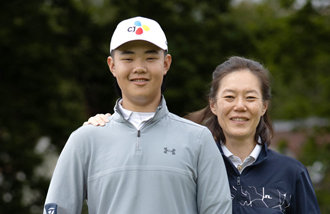Dispatch of prosecutor to presidential office should be prohibited
Dispatch of prosecutor to presidential office should be prohibited
Posted February. 10, 2017 07:23,
Updated February. 10, 2017 07:28
The ruling and opposition parties reportedly agreed to revise the Public Prosecutors’ Office Act Thursday to prevent a prosecutor who was dispatched to the presidential office Cheong Wa Dae from returning to the Prosecutors’ Office for two years. Pursuant to Article 44.2 of the Public Prosecutors’ Office Act, any public prosecutor shall not be dispatched to Cheong Wa Dae nor concurrently take the position thereof. This means that a prosecutor cannot be dispatched to Cheong Wa Dae under the current law. However, the dispatch has continued by adopting an expedient. It is encouraging that the ruling Saenuri Party agreed to the revision with the opposition parties of Democratic Party of Korea, People's Party and Barun Party.
The purpose of the ban is to ensure that prosecutors can perform their duties for the people without political influence. However, the dispatch has continued, with presidents willing to have influence on the prosecution and intervene in some cases, and prosecutors willing to advance their career.
The dispatch, which had begun in 1967, became illegal on the revision of the Public Prosecutors’ Office Act in January 1997 toward the end of Kim Young-sam’s presidency. Then, the presidential office employed a legal expert for one year from February 2002 toward the end of the Kim Dae-jung administration. However, the dispatch has continued through the administrations of Roh Moo-hyun, Lee Myung-bak and Park Geun-hye. The prosecutors could work at Cheong Wa Dae by resigning from the office and being rehired later. Indeed, 15 out of 20 prosecutors rehired from 2013 to July 2016 had worked at the presidential office.
The prosecution faced criticism when it acquitted Choi Kyoung-hwan and Yoon Sang-hyun, pro-Park lawmakers, of all the charges. They allegedly pressured some candidates to change their constituencies before the 20th general elections. More recently, lawmaker Kim Jin-tae, who is busy leading the so-called “Taegeukgi rallies” was exempted from indictment for violation of the election law; however, the court ordered the indictment, considering the prosecution’s decision unfair. The investigations into some conglomerates such as Hyosung, Posco, CJ and Lotte under the current government are also considered as “chaebol taming.”
The dispatch of prosecutors needs to be banned, going further from the two-year limitation. Only then, the collusive ties between the prosecution and the presidential office would be prevented. The revision bill should be passed before the change of government. If not, the new government and the ruling party are likely to overturn the decision. The current suspension of presidential duties could be an opportunity to break the collusive ties.






